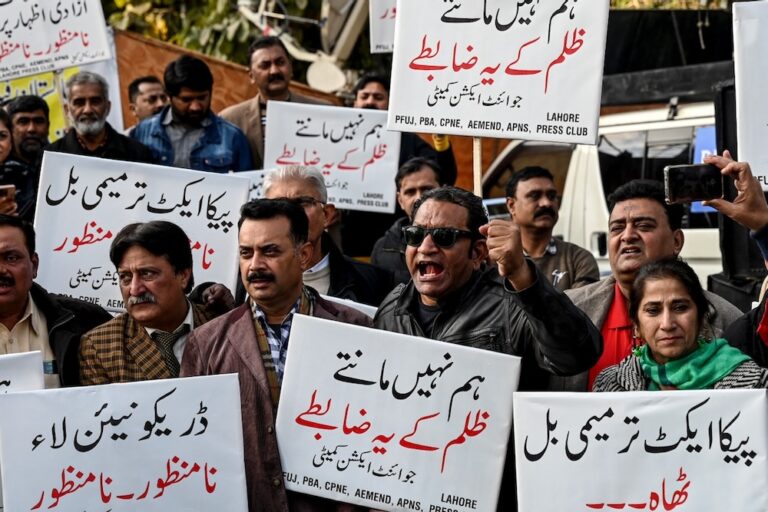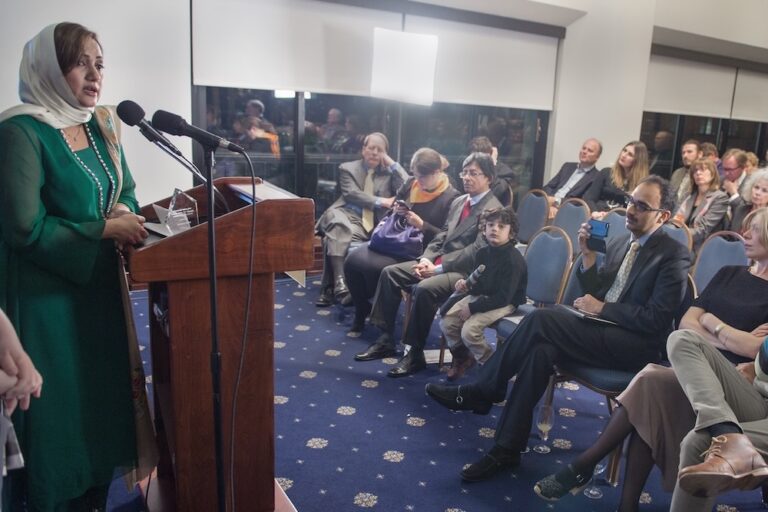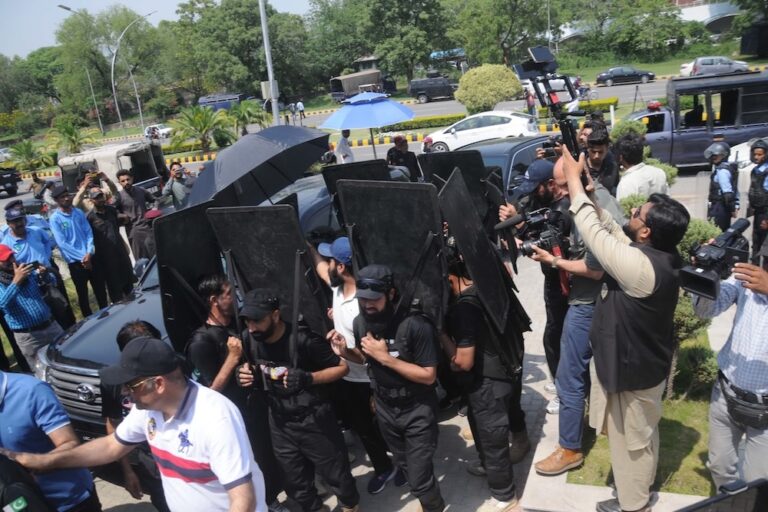(RSF/IFEX) – In a letter sent to the Pakistani minister in charge of Kashmir and northern areas affairs, Abbas Sarfraz Khan, RSF protested the banning of a private weekly in Kashmir, a province under the direct administration of the federal government. The press freedom organisation asked the minister to “intervene personally in order for the […]
(RSF/IFEX) – In a letter sent to the Pakistani minister in charge of Kashmir and northern areas affairs, Abbas Sarfraz Khan, RSF protested the banning of a private weekly in Kashmir, a province under the direct administration of the federal government. The press freedom organisation asked the minister to “intervene personally in order for the magistrate to change this decision, which deprives the people of this province of a local and independent source of information”. “The banning of this private newspaper, which merely exercised its right to inform, is in contradiction with Article 19 of the Universal Human Rights Declaration and the official statements of Chief Executive General Pervez Musharraf to guarantee press freedom,” stated Robert Ménard, RSF’s secretary-general. Since the beginning of this year, at least thirteen Pakistani newspapers have stopped publishing due to drastic cuts in government advertisements. Some observers denounced this as a deliberate campaign by the authorities to weaken the regional printed press.
According to information collected by RSF, on 17 October 2000, the magistrate of Skardu district (Baltistan, province of Kashmir) banned the weekly “K2” for publishing “objectionable material, promoting anti-Pakistan feelings and advocating curtailment of territories”. The magistrate accused Raja Hussain Khan Maqpoon, editor of “K2”, of publishing an article last April titled “A sovereign Gilgit, Baltistan: A review”, in which a former student leader asked for independence for the region. The judge referred to the Press and Publication Ordinance of 1995 that provides for sanctions for media which disseminate “seditious and objectionable” news. The magistrate also accused “K2” of publishing an article in August about a pro-independence demonstration by Baltistan people. At the beginning of October, the judge asked the editor for explanations about these writings and threatened him with sanctions. In his reply, sent a few days before the imposition of the ban, Raja Hussain Khan Maqpoon pointed out that the weekly noted that the editorial staff do not necessarily agree with the contents of articles written by external collaborators. He also denounced the attitude of the authorities, that tried to “kill his newspaper” by suspending government advertisements. “K2” is the oldest newspaper published by journalists from Skardu district in Kashmir, where the Indian and Pakistani armies have been fighting since 1947. Dedicated to Baltistan issues, a region near K2 mountain, the second highest mountain in the world, the weekly frequently denounces the “second zone” status of the people living in this area controlled by the federal government. According to its editor, “K2” has always respected “journalistic ethics”, giving the right of expression to the population of “this province without a constitution” (a motto written on the front page of the weekly).
Following the imposition of the ban, on 2 November, journalists from the northern areas demonstrated in the streets of Gilgit against this “political” decision backed by the federal government. Twelve of them were arrested for a few hours by the police during the demonstration.


